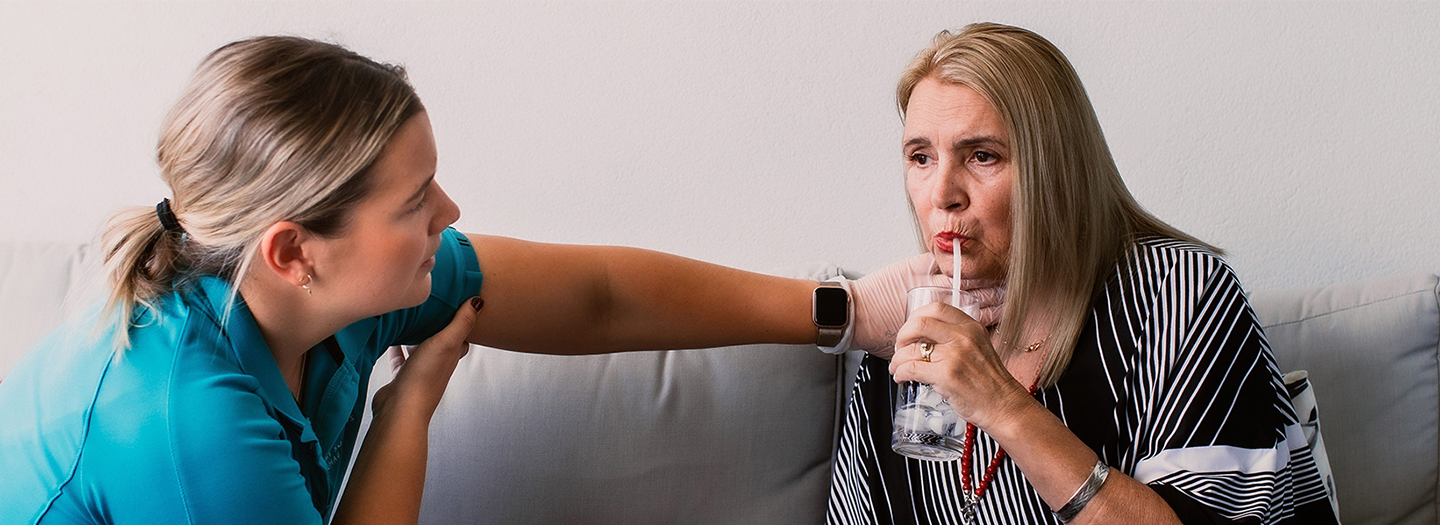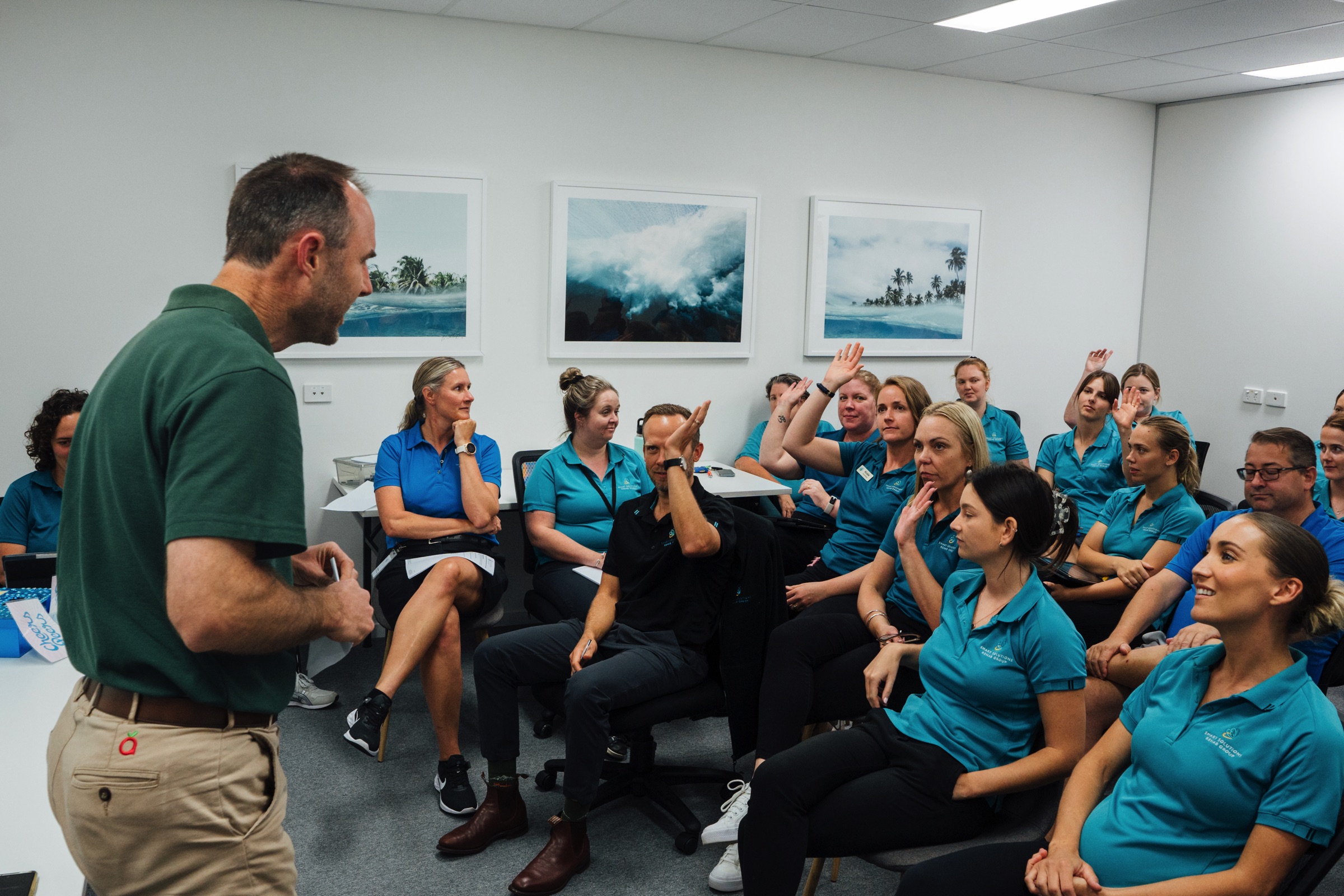Did you know Speech Pathologists are experts on swallowing?
Swallowing is a common part of our everyday function. Like breathing, swallowing is something most of us don’t pay much attention to – unless there is a problem. However, for those who experience difficulty swallowing, everyday activities like eating and drinking can often be stressful, uncomfortable, or sometimes even dangerous. Speech Pathologists are specially trained in the area of swallowing, having developed the expertise to assess, diagnose and treat Dysphagia.
What is Dysphagia?
Dysphagia (dis-fay-juh) is the clinical term used for a person who has difficulty swallowing. There are a multitude of conditions that can cause Dysphagia – from muscle weakness or poor coordination, through to diminished cognitive function, stroke, dementia, or head injuries, as well as diseases like Parkinson’s disease, Cerebral Palsy or motor neurone disease. A swallowing assessment is an effective way for a qualified health professional to accurately diagnose the cause of a person’s Dysphagia and develop a treatment plan to optimise mealtime safety.
What is a swallowing assessment?
A swallowing assessment is a diagnostic exam conducted by a Speech Pathologist or other qualified health professional. Swallowing assessments will either involve the use of instruments (instrumental swallowing assessment) or be conducted without instruments (non-instrumental swallowing assessment or ‘bedside swallowing assessment’).
Instrumental swallowing assessment
An instrumental swallowing assessment can be organised at one of the local hospitals based on a client’s needs. This assessment involves the use of X-ray or video equipment to further investigate the outcome of a non-instrumental swallowing assessment. Your Speech Pathologist will be able to identify if this assessment is required, organise your referral and then provide you with recommendations based on the results.
Non-instrumental swallowing assessment
A non-instrumental swallowing assessment involves a broad range of elements. In addition to specifically assessing how a person swallows, the Speech Pathologist will address other potential contributing factors ranging from a person’s living environment to their eating posture, as well as identifying any mealtime fatigue. Other assessment procedures may include:
- Comprehensive investigation of client’s medical history
- Oral motor exam (including cranial nerve assessment, assessment of facial structures, functional assessment of muscles and other swallowing structures, head and neck control)
- Holistic assessment of all physical, behavioural, social, communicative and cognitive factors
- Reviewing the client’s own perception of their functional capacity
- Assessing speech and vocal quality
- Assessing secretion management (saliva swallowing)
- Assessing feeding competency skills
- Identify signs of possible aspiration
- Assessment of ability to clear airway/cough strength
Swallowing assessment outcomes
Swallowing assessments are essential in both the diagnosis of swallowing disorders and facilitating the development of the appropriate therapy plan. This may involve techniques and training in the areas of mealtime safety including swallowing advice, mealtime management plans, advice on the texture of food and thickness of fluids and recommendations around utensil use. The Speech Pathologist may also refer their client to an Occupational Therapist for advice on potential environmental modifications and aids that can facilitate mealtime safety, and/or a Physiotherapist for advice on posture and safe positioning.
How to access a swallowing assessment
The easiest way to explore your options, and assess your eligibility is to discuss your circumstances with a support coordinator or service provider like a GP. There are a variety of funding options available depending on a person’s individual circumstances. These might include access to the NDIS (National Disability Insurance Scheme), Home Care Packages, DVA, Medicare, Transition Care Services or WorkCover to name a few. You can find out more about our Speech Pathology services here, or by contacting us on 1300 729 190 or contact@ssrg.com.au. Our team is always available to discuss your needs.




